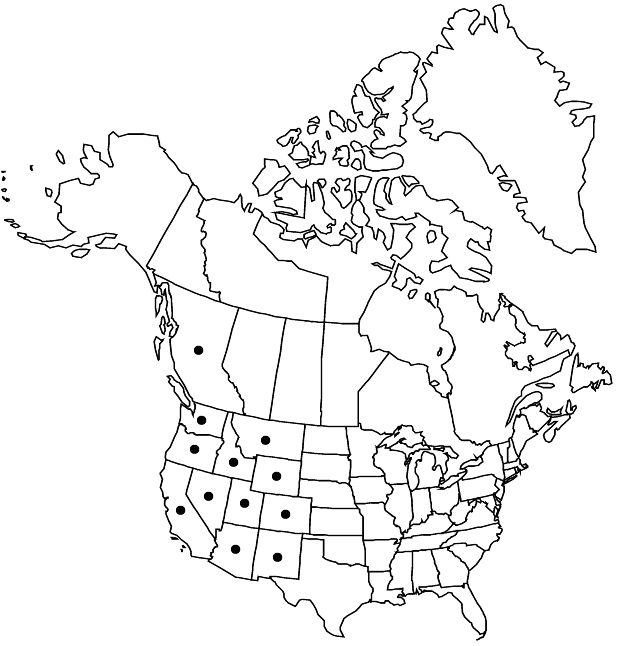Lithophragma tenellum
in J. Torrey and A. Gray, Fl. N. Amer. 1: 584. 1840 (as tenella) ,.
Plants slender. Flowering-stems simple, 15–30 cm. Leaves in basal rosette and cauline, basal unlobed, irregularly 3–5-lobed, or digitately lobed, sometimes almost pinnatifid, cauline (2), deeply 3-lobed, appearing pinnatifid, much reduced, more highly dissected than basal; stipules broad, decurrent on petiole base, (margins fimbriate); petiole to 8 cm; blade light green, orbiculate, (base hastate), surfaces sparsely hairy. Inflorescences 1–5, (compact), erect, 3–12-flowered racemes, simple, (10–12 cm). Pedicels shorter than hypanthium. Flowers persistent, not fragrant, slightly pendulous; hypanthium campanulate or hemispheric, becoming elongate-campanulate in fruit, open at throat; sepals erect in bud, widely spreading after anthesis, triangular; petals (exserted), widely spreading, pink, sometimes white, ovate, narrowly clawed, palmately 5–7-lobed, (sinuses extending 1/3–1/2 distance to base), 3–7 mm, ultimate margins entire; ovary to 1/2 inferior; styles exserted slightly in fruit; stigma papillae in narrow subapical band. Seeds 0.6–0.7 mm, smooth or wrinkled. 2n = 14, 35.
Phenology: Flowering (Feb-)May–Jun(-Aug).
Habitat: Sagebrush desert in mountainous regions or high plateaus, dry, open forest, meadows, grasslands, and shrublands, sometimes in mesic subalpine habitats with Lithophragma parviflorum and L. glabrum
Elevation: 1200-3000(-3400) m
Distribution

B.C., Ariz., Calif., Colo., Idaho, Mont., Nev., N.Mex., Oreg., Utah, Wash., Wyo.
Discussion
Lithophragma tenellum usually occurs on the eastern side of the Cascade Mountains and in the Rocky Mountains, Nevada, and Utah into western North America.
Taxonomy of Lithophragma tenellum is poorly understood because there are few collections from widely divergent geographical areas. The northwestern population (Washington, British Columbia) has been separated as a distinct species (L. thompsonii) based on the extent of the basal leaf lobation, which often shows considerable variation in all species. However, other populations in the Rocky Mountains, Nevada, and Utah have been observed with this lobation, as has Washington-British Columbia material having the more typical leaf form.
Selected References
None.
Lower Taxa
"entire" is not a number."broad" is not a number.